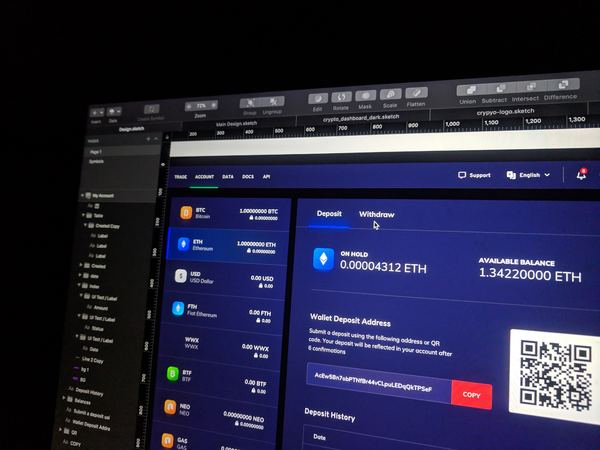
In the past ten years, the bitcoin trading ecosystem has evolved into a mature market with a range of financial products and derivatives based on the world’s first decentralized digital currency.
Here is a complete list of bitcoin derivatives that you can use to bet on the price development of bitcoin going forward.
Futures
Bitcoin futures are financial derivative contracts that oblige the holder to buy (or sell) bitcoin at a predefined price and a specific date in the future. Bitcoin futures contracts may be settled in cash or bitcoin and provide investors with the opportunity to bet on the price development of bitcoin using leverage.
Traditionally, futures were primarily used to hedge commodity positions, but they have since turned into popular investment vehicles for speculators most notably because investors who want to go short an asset can sell futures to do so.
Bitcoin futures can be traded on the Chicago Mercantile Exchange or on crypto derivatives trading platforms, such as BitMEX, Deribit, or Quedex.
Perpetual Futures
Perpetual bitcoin futures (also known as perpetual swaps) function in the same way as “normal” bitcoin futures with the key difference being that they have no fixed maturity date (hence the term “perpetual”).
Perpetual bitcoin futures have bitcoin as their underlying asset and are settled in bitcoin, which means investors do not touch fiat currency in the transaction. This can help traders in certain jurisdictions.
Moreover, perpetual bitcoin futures enable traders to bet on the price development of bitcoin using leverage, which is the main reason why perpetual futures have become so popular on the bitcoin derivative exchange BitMEX, which pioneered this financial product in the digital asset market.
Options
Bitcoin options give traders the right but not the obligation to buy (or sell) bitcoin at a specific price at a predefined time in the future. Options are, therefore, an excellent way to bet on a bitcoin rally in the near future with only a small amount of available capital.
Bitcoin options also provide an excellent tool to hedge a digital asset portfolio. For example, if you hold a diversified portfolio of digital currencies, you could purchase a bitcoin put option with a strike price that is 25 percent below the current market value and a maturity of six months. Should the market (and, thus, your portfolio) drop by 50 percent, your portfolio would lose around 50 percent, but your put option would be “in the money,” which would reduce the impact of the market drop on your portfolio.
Alternatively, if you want to bet on the price of bitcoin “mooning” in the coming months, you could buy a September call option on bitcoin with a strike price of $14,000 on Quedex. Should the price rally above the $14,000 mark to $15,000, for example, then your call option will be in-the-money by $1,000 minus the premium (the price) paid for the option.
Currently, the two leading bitcoin options trading platforms are Deribit and Quedex.
Binary Options
Binary options are financial derivatives that enable traders to bet on whether the price of an asset will end up higher or lower at a predefined time in the future. The outcome of these markets is binary; either you win and earn a return or you lose all your invested capital. Binary options are among the riskiest investment vehicles in the financial markets and are, thus, not a recommended way to trade bitcoin for newcomers.
An example of a bitcoin binary options trade would be to “go long” a binary options market on bitcoin that has an end-of-day expiry. That means if the price of bitcoin ends up higher than it traded at the launch of this specific market, then you win a fixed amount determined by the market.
If the binary option is trading at 65/35 and you buy the option, you stand to gain 35 cents on the dollar if the price closes above the strike price. If the price closes lower at the end of the binary options market, you lose your entire invested capital.
There are a number of online brokerages that offer binary options on digital currencies. However, it is important to note that binary options brokers are often not regulated and, in light of the riskiness of this type of derivatives, only experienced investors who fully understand all the risks involved should “gamble” on bitcoin with this financial product.
Variance Swaps
A bitcoin variance swap is a financial derivative that has the annualized variance (i.e. volatility) of bitcoin as its underlying market.
The bitcoin variance swap enables one of the two parties involved in a transaction to pay an amount based on the variance (volatility) of bitcoin. The second party will pay a fixed amount (known as the strike price) that is determined at the beginning of the transaction.
Therefore, bitcoin variance swaps can be used to either hedge or bet on the volatility of bitcoin. For example, if a company that is naturally long digital currencies wants to hedge against market volatility, it could purchase a bitcoin variance swap to “lock-in” the BTC volatility to prevent market movements to affect its profitability.
Bitcoin variance swaps were introduced by algorithmic digital asset trading company GSR Trading in April 2019. The Hong Kong-based company acts as a market maker for this new bitcoin derivative, which is targeted at institutions and bitcoin companies, not retail traders.
Related Articles:
- What Is Decentralized Finance (DeFi)?
- How to Short Bitcoin: 5 Popular Options
- Top 5 Crypto Exchanges for Margin Trading, Rated and Reviewed 2020
Subscribe to the Bitcoin Market Journal newsletter to discover the latest bitcoin and blockchain investment opportunities and market trends.

